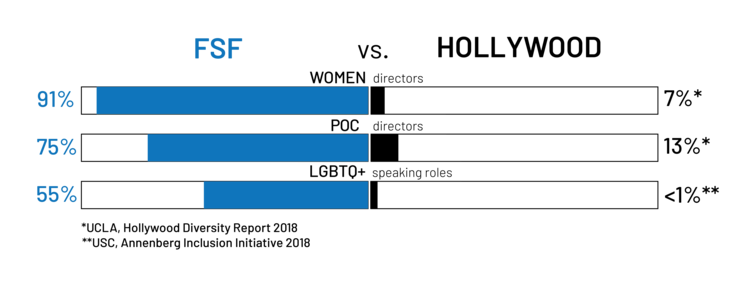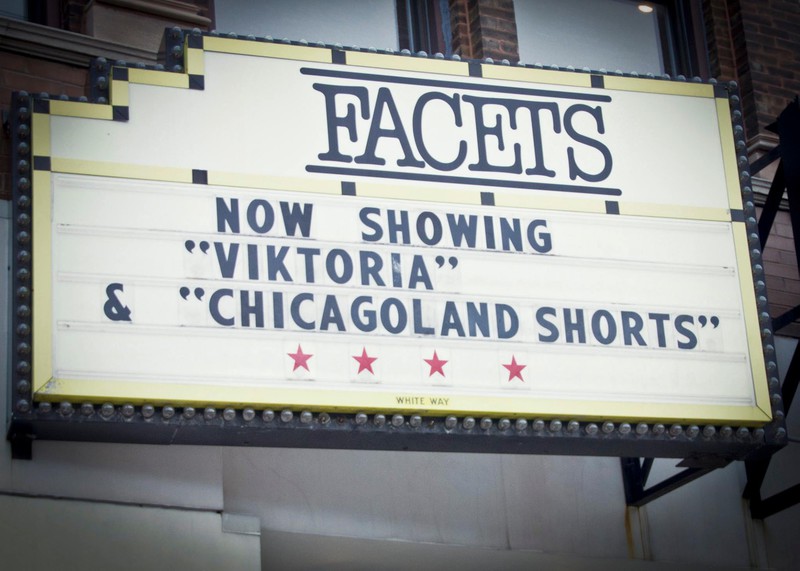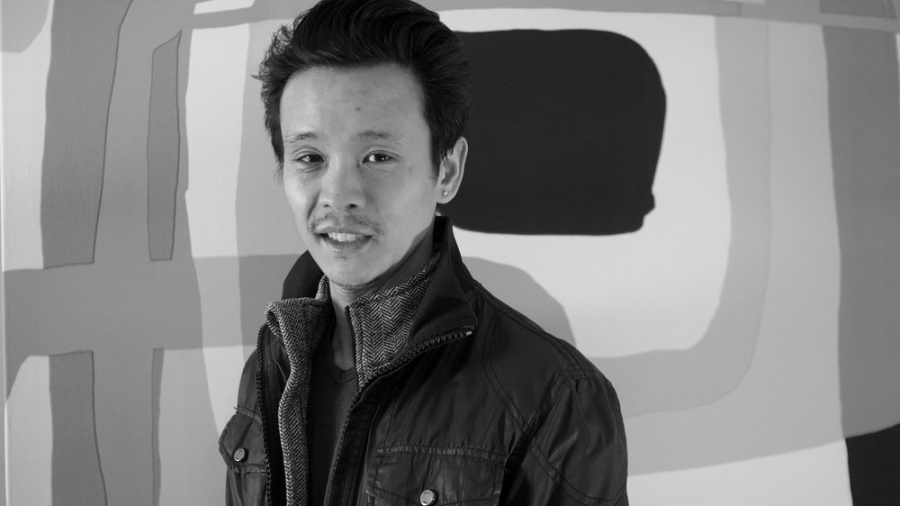Written by Precious Ringor
Writer Precious Ringor sits down with Jason Matsumoto from Full Spectrum Features to talk about the company, film funding, and the importance of talking about racial inequity with your team.
[Pictured above: Jason Matsumoto, co-founder and chief operations officer of Full Spectrum Features. Photo taken from Full Spectrum Features.]
How did Full Spectrum Features come to be?
Five years ago, I co-founded the organization with Eugene Park, our director. He’s a Korean American from New Jersey, and I grew up in the suburbs of Chicago. In spite of our families being here for a long time and in many ways being socialized as American – the fact that we have Asian features means we are always going to be seen as the “other.” That compelled a lot of the reason why we wanted to create Full Spectrum. Because if you are able to create your own story and reach a mass audience through film, that’s a really powerful way to reach people and begin to build empathy for different experiences. To highlight what it might be like to experience the world, particularly in places we grew up, looking the way we do.
Was that where your mission was founded from, the experiences of the “other”?
The founding has always been about uplifting various voices. If you are a person of color, a woman, LGBTQ, or if your identity intersects any of those in any way, the challenges of getting your film out there is monumentally different than let’s say if you’re a straight white male.
The mission that we began this company with was to understand the industry, how that can shift and change, to figure out our role in that shift. Cinematic storytelling is quite powerful – to share ideas from different pockets of the world, different corners, different experiences across the country. And it’s really important to know whose stories we are telling.
What communities do you serve, is it limited to the Chicago community?
Our mission is to uplift voices of women, POC, and the LGBTQ community within the film landscape. In many ways, it’s very timely but it has always been timely to want diversity or to create equity for different voices within the film industry, whether it’s the stories being told, the people writing scripts, folks in the film and also behind the camera making decisions about what gets green lit or funded. We’re focused on trying to work in spaces that we believe can fundamentally shift and change what equity looks like within the film landscape.
We’re both supportive of the local film industry, but most of our programs are open to filmmakers and artists all over the country. We are always looking for projects and partnerships that span the globe.

Source taken from Full Spectrum Features’ website. The organization is proud to be an ALAANA (African, Latinx, Arab, Native American) organization founded and led by people of color, women, and LGBTQ filmmakers.
There’s so much uncertainty going on from the pandemic. Not only that, but society is also dealing with systematic injustice and civil unrest. Has your organization’s mission evolved during these hard times?
We started out as an organization that produces films for diverse voices we don’t see in the industry. But we realized by just producing work, we are not changing fundamental structures and not inviting to the conversations the larger problems of systemic inequity that exist.
Recently, we’ve been having these weekly racial equity conversations with our team and it’s a good way to kick off a Friday morning. Obviously, so much of our mission is tied with increasing diversity and inclusion in independent film and, like many organizations that are dedicated to this mission, we’re thinking quite a bit of how our network and our team have a shared understanding of racial equity. It helps us to think about how to combat these structures in the industry.
And how did these conversations come to be?
I think a big part of it is we came to realize we need to talk about racial inequity and equity across gender or sexual identity. It’s a muscle we don’t work out; very often people don’t feel comfortable talking about identity when you’re in groups. Our Friday conversations came from that – if it’s uncomfortable to talk about amongst our team, then how are we able to talk about this outside?
So let’s get good at practicing being vulnerable, learning, and sharing with each other about these topics. And that in affect allows us to do our work in a much more effective way. It’s important to be able to talk about these things and pinpoint some of the issues and root causes, to really look at these moments of inequity in the system and have a fighting chance to think about solutions.
The pandemic has really affected the entertainment industry as a whole, how has COVID-19 impacted your organization?
As a non-profit, I think we’ve been lucky to be in a position to have pivoted to virtual or remote working, we are all very thankful to continue to do the work. Financially, it’s been a pretty big hit.
We were 10 days into a 20-day shoot which had to be cancelled. We do a collection of shorts in Chicago every year called “Chicagoland Shorts” that is a big event for the local film industry and we had to move it online, which means we missed the in-person activity you can’t do on zoom. Attendance, in-person events, film shoots… everyone is figuring out how to shoot films and what safety of public measures look like for film sets.

CHICAGOLAND SHORTS has been played to audiences across the country. From art house theatres to microcinemas, the film festival celebrates Chicago’s new wave of independent cinema and features the works of underrepresented filmmakers in the industry. Unlike past years, this year premieres online.
As a non-profit, there’s a whole conversation about how dependent we are on funding from foundations and since there’s a lot of funding being diverted to immediate needs – which makes a lot of sense – it leaves a big question mark about arts funding not just this year but for the next five years. What will happen to arts funding nationally, in particular, non-profits that help small arts foundations survive? That’s a big motto of our existence. So, we have to keep an eye on how we run our business so we will still be around in 5 years.
What are some ways the public can support this organization?
We’re a 501(c)(3) and this year, it’s going to be rough. If people have interest in donating, there’s a way to do that. Check out our programs; if you’re an artist or a filmmaker, there’s different ways to be involved. We run a fiscal sponsorship program and we can work with you. We evaluate projects, pull it through our programs, and they become part of the organization. We always looking for content or new fiscal sponsorship projects.
To find out more about Full Spectrum Features’ programs or to donate, visit https://www.fullspectrumfeatures.com

